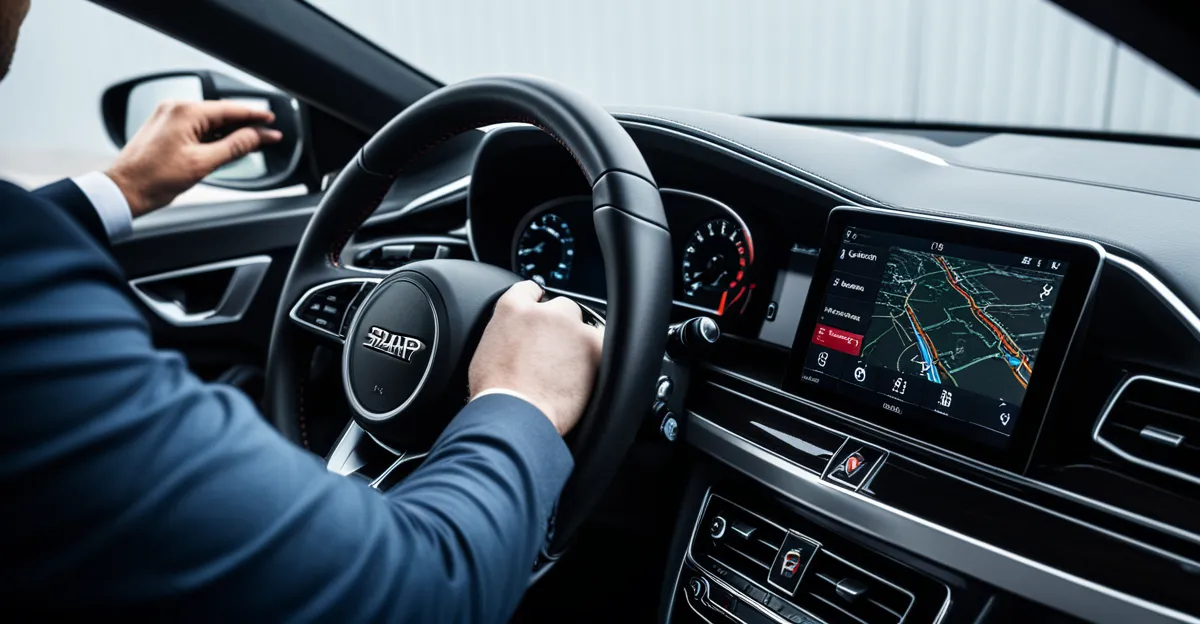Overview of Future Challenges in the UK Automotive Industry
The UK automotive industry is at a crossroads, grappling with a multitude of future challenges that could redefine its landscape. This industry serves as a critical pillar in the nation’s economy, yet it faces an evolving array of difficulties that demand attention. Analyzing the current state reveals a sector striving to balance innovation with sustainability amidst technological disruptions. Emerging trends, notably in electric vehicles and smart mobility, are reshaping traditional business models, pushing companies to stay agile and responsive.
One significant challenge is the shift towards electric vehicle adoption, which requires substantial investment in charging infrastructure and overcoming persistent market barriers. Furthermore, globalization has introduced complexities in supply chain management, with global supply chains currently susceptible to disruptions from unforeseen geopolitical tensions and pandemics.
Also read : How are UK automotive companies integrating renewable energy in production?
Proactively addressing these industry outlook concerns involves strategic planning and investment. Automotive firms must harness emerging technologies, adapt to regulatory changes, and foster collaborative efforts to navigate the pressures of sustainability. By recognizing and preparing for these future challenges, the UK automotive industry can fortify its resilience and competitiveness on the global stage.
Electric Vehicle Adoption Challenges
The shift towards electric vehicles (EVs) marks a transformative era for the UK automotive industry. However, the road to widespread EV adoption is paved with significant hurdles, primarily concerning the charging infrastructure.
In parallel : What Are the Latest Trends in UK Automotive Safety Technologies?
Current EV Market Trends
The EV market is witnessing remarkable growth, driven by policy incentives and an increased focus on reducing emissions. Sales figures are climbing, yet the infrastructure development is struggling to keep pace with demand. This disparity poses a substantial barrier to further adoption and highlights the necessity for rapid expansion of charging stations.
Consumer Acceptance and Market Barriers
Despite the increasing popularity of electric vehicles, consumer concerns linger. Market barriers such as the fear of limited range, high purchase costs, and insufficient charging infrastructure deter potential buyers. Overcoming these barriers requires enhanced awareness about the benefits of EVs and government initiatives to make them more financially accessible.
Development of Charging Infrastructure
A robust charging infrastructure is essential to support the burgeoning EV market. Government and private sectors must collaborate to expand the network of charging stations. Investment in fast-charging solutions is critical, alongside efforts to ensure equitable access across urban and rural areas. This collaboration is key to alleviating consumer hesitations and facilitating the seamless adoption of electric vehicles in the UK.
Supply Chain Disruptions
Navigating the complexities of supply chain issues is a pressing concern for the UK automotive manufacturing sector, particularly in the context of global supply chains. Recent global events have only intensified these challenges.
Impact of Global Events
Recent disruptions, primarily from the pandemic and geopolitical tensions, have exposed vulnerabilities in global supply chains. Industries worldwide, including automotive manufacturing, have had to confront bottlenecks and delays that ripple through production lines. The SQuAD method highlights that the pandemic led to fluctuating demand, while certain geopolitical tensions affected the availability of critical components.
Risks and Vulnerabilities in Local Supply Chains
Understanding the risks and vulnerabilities specific to the UK’s supply chains is paramount. The automotive industry’s reliance on timely delivery of numerous parts means even minor delays can cause significant financial impacts. For instance, the intricate web of suppliers and just-in-time delivery models is particularly vulnerable to international disruptions.
Strategies for Resilience
Building resilience against supply chain disruptions requires a multifaceted approach. Automotive manufacturers are increasingly focusing on diversifying their supplier networks to mitigate risks. This includes reshoring certain elements of production, enhancing inventory management strategies, and investing in digital solutions for better forecasting and demand planning. These proactive strategies can help fortify the industry’s foundation amidst ongoing and future challenges.
Brexit Implications
The Brexit impact on the UK automotive industry is multifaceted, influencing trade agreements, talent retention, and supply chain logistics. These implications present an array of challenges that require strategic adjustments.
Trade Barriers and Tariffs
With the UK’s departure from the European Union, new trade barriers and tariffs have emerged, complicating international trade relations. As a result, automotive manufacturers face increased costs and administrative burdens, requiring agility in negotiating new trade agreements. Compliance with varying regulations further adds complexity to cross-border trade, demanding a streamlined approach to maintaining competitiveness.
Talent Retention and Labor Market Effects
Brexit has also affected the labor market, leading to apprehensions about talent retention within the industry. The restrictions on the freedom of movement have impacted the availability of skilled labor, creating potential gaps in the workforce. The industry’s talent retention strategies must focus on enhancing employment conditions, fostering skills development, and attracting new talent to mitigate Brexit’s adverse effects.
Adjustments in Supply Chain Logistics
Post-Brexit, supply chain logistics adjustments are inevitable to accommodate the new trade landscape. Companies are pushed to reevaluate their operational models to align with altered customs protocols and trade rules. Key strategies include building resilience through diversified supply sources and leveraging technology for efficient supply chain management. These efforts aim to ensure that manufacturers can navigate disruptions smoothly in this transformed environment.
Regulatory Changes and Compliance
Navigating the landscape of automotive regulations poses ongoing compliance challenges for manufacturers within the UK. As government policies evolve, so too must the industry’s strategies to keep pace with the shifting regulatory framework.
Emission Standards
Emission standards are tightening, with government policies aggressively targeting reductions in vehicular emissions. Addressing this demands significant adjustments in vehicle design and manufacturing processes. Manufacturers are tasked with implementing advanced technologies that reduce emissions while maintaining performance. This regulatory pressure necessitates considerable investment in research and development to innovate and stay compliant.
Safety Regulations
Changes in safety regulations reflect a growing emphasis on consumer protection and technological advancement. These regulations require manufacturers to integrate cutting-edge safety features into their vehicles, which can influence design and production processes. Compliance involves not only adhering to standards but also proactively engaging in R&D to anticipate future safety requirements.
Impact on Research and Development
Regulatory changes significantly impact research and development expenditures. As emission and safety standards evolve, automotive companies must divert more resources towards innovation. The focus is on developing technologies that meet new regulations without compromising on efficiency and cost-effectiveness. These mandates drive the industry towards breakthroughs in vehicle design, materials, and systems, ensuring future compliance and continued competitiveness.
Sustainability Pressures
In today’s evolving automotive industry, sustainability has become a central focus for manufacturers and consumers alike. The demand for green initiatives and the integration of a circular economy have propelled the UK automotive industry into a new era of environmental consciousness.
Consumer Expectations
Modern consumers are increasingly prioritising sustainability when choosing vehicles, reflecting a broader societal shift towards environmentally responsible living. This expectation drives manufacturers to innovate and offer models that incorporate eco-friendly features. The emphasis on reducing carbon footprints and promoting sustainable materials is reshaping traditional automotive practices to meet these market demands.
Corporate Social Responsibility
Corporate social responsibility (CSR) is more than just a buzzword; it is a crucial aspect of the automotive industry’s strategy for maintaining a positive brand image. Companies are adopting CSR policies that extend beyond compliance, actively engaging in environmental stewardship and transparent practices. By showcasing sustainability commitments, automakers can enhance their reputation and build trust with consumers increasingly wary of environmental degradation.
Integration of Circular Economy Principles
The circular economy model presents an opportunity for the industry to create a more sustainable production lifecycle. This approach focuses on reducing waste and optimising resource use through recycling and reusing materials. In practice, it involves everything from designing vehicles for easier disassembly to leveraging recycled components in new models. By embracing these principles, the UK automotive sector can reduce its environmental impact while offering value to environmentally conscious consumers.
Technological Advancements
The acceleration of technological advancements in the UK automotive industry is spearheading a new dawn of innovation and future mobility. Central to this transformation are autonomous vehicles, artificial intelligence (AI), and connectivity solutions that promise to reshape the transportation landscape profoundly.
Rise of Autonomous Vehicles
Autonomous vehicles, which operate without direct human intervention, represent the frontier of automotive innovation. The potential benefits include improved safety, reduced congestion, and enhanced mobility for all sectors of society. However, widespread adoption is currently hindered by regulatory hurdles that need to be addressed. The UK automotive industry must work in tandem with policymakers to establish clear guidelines that ensure safety while fostering innovation.
Integration of AI and Machine Learning
The integration of AI and machine learning into automotive manufacturing and design is a pivotal development. These technologies enhance production efficiency, optimize supply chains, and elevate safety standards through predictive maintenance and smart production systems. By leveraging AI, manufacturers can anticipate potential faults and streamline operations, significantly reducing downtime and costs.
Connectivity and Smart Mobility Solutions
Connectivity technologies are enabling the development of smart mobility solutions, which are essential in creating integrated, efficient urban transportation systems. Vehicles now come equipped with interconnected systems that allow for real-time data exchange and enhanced vehicle-to-everything (V2X) communication. This seamless connectivity supports the smoother flow of traffic and enhances driver experiences, proving crucial as cities evolve into smart urban environments.
In conclusion, as these technological advancements propel the industry forward, the UK automotive sector remains poised to lead in innovation, albeit with the need for strategic alignment with regulatory and infrastructural developments.











